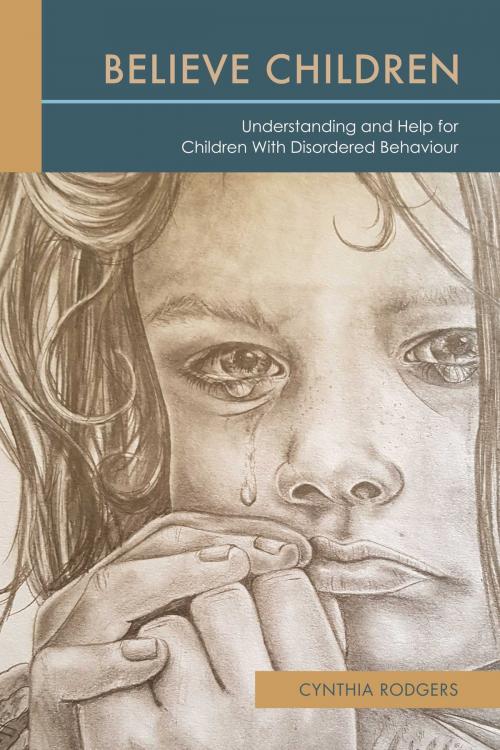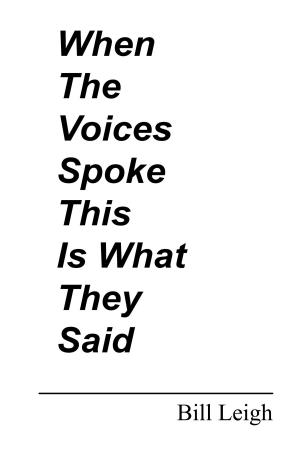Believe Children: Understanding and Help for Children With Disordered Behaviour
Nonfiction, Health & Well Being, Psychology, Child & Adolescent, Child Development| Author: | Cynthia Rodgers | ISBN: | 9781543915617 |
| Publisher: | BookBaby | Publication: | October 15, 2017 |
| Imprint: | BookBaby | Language: | English |
| Author: | Cynthia Rodgers |
| ISBN: | 9781543915617 |
| Publisher: | BookBaby |
| Publication: | October 15, 2017 |
| Imprint: | BookBaby |
| Language: | English |
Behaviour disorders are a direct result of damaged neurological processes, learn how to investigate and then resolve these dysfunctional pathways. Gun control is not the answer because it is reactionary. This innovative and proactive method changes the way you look at children with behavior problems. Parenting and teaching children with mental health issues, whether diagnosed or undiagnosed, can be challenging and complex. But the child who struggles with trauma-induced neurological damage can learn patience, communication, and solution-seeking skills to become more confident, independent, and capable. This book is full of narrative richness and offers understanding, tips, tools, and foundational expertise for parents and teachers to help cultivate these skills. Combining expert information with practical, skill-based teaching, the "key" concepts here will help people reduce violence and aggression, improve cooperation, and nurture the advantages―like creativity and drive―that often accompany emotional and mental health problems. Based on author Cynthia Rodgers's almost thirty-year career working with "at-risk" youth, Believe Children: Understanding and Help for Children with Disordered Behavior focuses on developing and strengthening effective interpersonal skills in both adults and children as a way to understand and help teach emotional regulation and conflict resolution. Following the principles of epigenetics and Dr. Ross Greene's skill-based approach, Rodgers offers a self-help book for "broken people" that is tailored to meet the needs of these unique children. The book also leads parents and teachers to recognize the value of the developmental trauma as a guide for all children. Building the adults' confidence in their decision-making, and giving children a sense of safety and security necessary for change. The principles outlined in Believe Children are appropriate for parenting and teaching children of all ages, Improving mental and emotional health by creating happy and healthy children. By understanding how neurological processes can be influenced by the environment and interactions with others, we can then focus on helping all children survive and thrive. There is help for children and parents who feel traumatized by our society and culture of silence and it starts with looking at the basics of skill development and acquisition necessary for appropriate behavior. This book details how neurological systems get derailed and then offers suggestions on how to help change the thinking and emotions that trigger disordered thinking. It also details how behavior change works and how you can apply these techniques to yourself and others.
Behaviour disorders are a direct result of damaged neurological processes, learn how to investigate and then resolve these dysfunctional pathways. Gun control is not the answer because it is reactionary. This innovative and proactive method changes the way you look at children with behavior problems. Parenting and teaching children with mental health issues, whether diagnosed or undiagnosed, can be challenging and complex. But the child who struggles with trauma-induced neurological damage can learn patience, communication, and solution-seeking skills to become more confident, independent, and capable. This book is full of narrative richness and offers understanding, tips, tools, and foundational expertise for parents and teachers to help cultivate these skills. Combining expert information with practical, skill-based teaching, the "key" concepts here will help people reduce violence and aggression, improve cooperation, and nurture the advantages―like creativity and drive―that often accompany emotional and mental health problems. Based on author Cynthia Rodgers's almost thirty-year career working with "at-risk" youth, Believe Children: Understanding and Help for Children with Disordered Behavior focuses on developing and strengthening effective interpersonal skills in both adults and children as a way to understand and help teach emotional regulation and conflict resolution. Following the principles of epigenetics and Dr. Ross Greene's skill-based approach, Rodgers offers a self-help book for "broken people" that is tailored to meet the needs of these unique children. The book also leads parents and teachers to recognize the value of the developmental trauma as a guide for all children. Building the adults' confidence in their decision-making, and giving children a sense of safety and security necessary for change. The principles outlined in Believe Children are appropriate for parenting and teaching children of all ages, Improving mental and emotional health by creating happy and healthy children. By understanding how neurological processes can be influenced by the environment and interactions with others, we can then focus on helping all children survive and thrive. There is help for children and parents who feel traumatized by our society and culture of silence and it starts with looking at the basics of skill development and acquisition necessary for appropriate behavior. This book details how neurological systems get derailed and then offers suggestions on how to help change the thinking and emotions that trigger disordered thinking. It also details how behavior change works and how you can apply these techniques to yourself and others.















